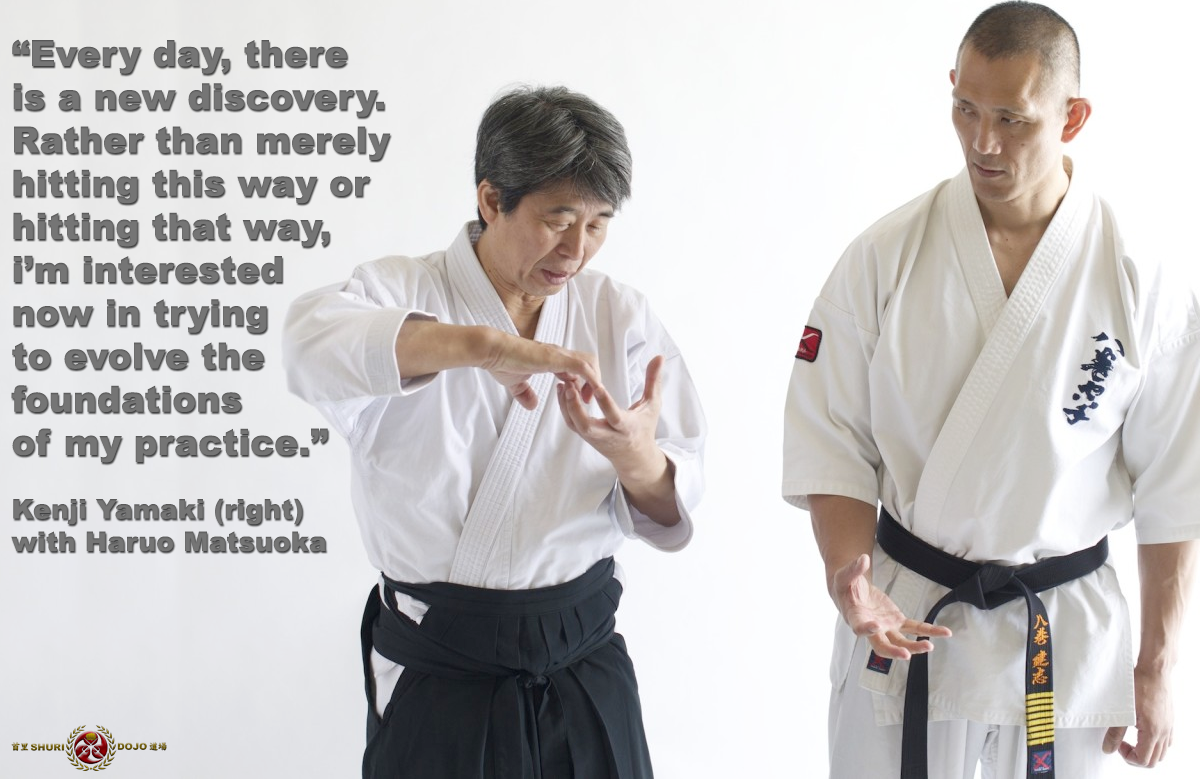
“Every day, there is a new discovery. Rather than merely hitting this way or hitting that way, i’m interested now in trying to evolve the foundations of my practice.” – Kenji Yamaki
.
You can learn all the technical skills you want. You can learn all the theories and understand the concepts down to the core. But what’s the point if you don’t know what to do with it?
.
Knowledge isn’t power. Application of knowledge is power. The unfortunate truth is that many people are more interested in knowing, instead of acting. They pursue knowledge for knowledge sake and, store this knowledge like books on a shelf.
.
I recall a 2nd dan who wanted to train with me saying that; “I know all your kata”. Apparently he viewed them on YouTube.
.
Knowledge is power only when you truly understand and can apply it.
.
What’s the point of knowledge if there isn’t application? There is a huge difference between theory vs. practice. Theory assumes an outcome, while practice allows you to test the theory and see if it is accurate.
.
When you learn something new, think about the end goal. Think about the big picture, and how it will apply to a real life situation (if that’s your goal). Learning isn’t only about memorization and your performance. Realize that learning gets more interesting when you can apply it to real life. You need to transfer your knowledge into the real world, and apply what you’ve learned. That knowledge needs to be tested.
.
And while dojo sparring, the long distance consensual sparring most often practiced in karate today, is an invaluable exercise, it is not real. Be clear on what is being trained for in any given moment and always pursue skills in line with the stated objective.
.
Why?…. Because the problem is, you as the martial artist, does not know what the criminal is doing, because you assume they will act like martial artists. They do not.
.
So when moving from theory into practice, you need to have an end goal in mind, and have a vision of what you want to do with the knowledge you have accumulated. You should thoroughly and completely understand the fundamentals, the basics, the principles, so that you can return to them and have a baseline to start from.
.
Practice applying what you’ve learned. Put theory to practice. Be prepared to fail, and you will. Think about what to do when it goes wrong, and understand that it will be a learning experience.
.
Trying to acquire experience with theory, it’s like trying to satisfy your hunger by just reading the menu…. Applied practice will outperform theory alone every time.![]()
![]()
.
